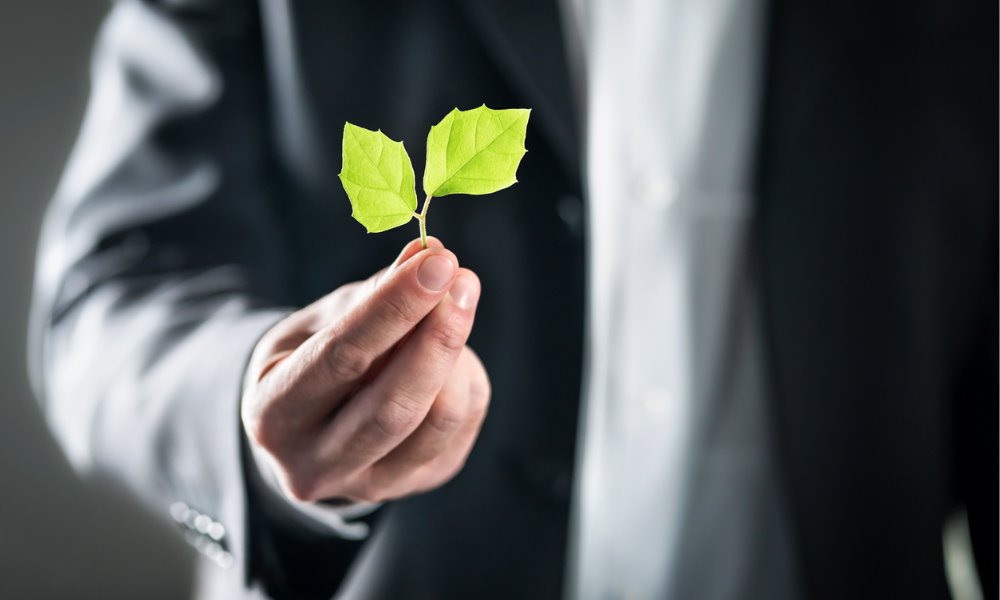Portfolio manager explains how coronavirus pandemic has meant renewed relevance of ESG

The coronavirus pandemic has created an unprecedented situation for most of the world, with most economies being forced into a virtual lockdown to combat an invisible threat. In this environment, playbooks don’t provide much value to investors — but perhaps principles can.
That’s the view of Jeremy Richardson, senior portfolio manager at RBC Global Asset Management, who argues that in the current climate of radical uncertainty, taking the long view through an ESG lens is more important than ever.
“We don’t even know what the range of possible outcomes is at the moment,” he said. “But when you get periods of uncertainty and increased volatility, it’s very reassuring for investors to have companies that are focused on long-term sustainability.”
A long-term edge
Heightened volatility provokes different behaviours among different kinds of portfolios depending on their holdings. But with respect to the current environment, Richardson highlighted a few factors that have given sustainability-oriented portfolios a potential edge.
“If one was to do a factor attribution of the last eight weeks or so, they’d find that businesses that are using less debt have tended to perform a little bit better in the stock market,” he said. “I think that speaks to investors’ appreciation for quality, which one tends to find among companies that are operated responsibly for the long term as their managers take on prudent levels of risk.”
In times of crisis, having sufficient cash to meet one’s outgoings provides valuable freedom to companies. Aside from having more confidence from their suppliers and lenders, they can seize the opportunity to earn goodwill from customers and employees by listening closely and addressing their needs.
Another factor that’s helped many sustainability-focused funds is their focus on the environment, particularly with respect to how it’s affected by carbon emissions. As Richardson noted, when energy prices plunge as they have done over recent weeks, portfolios with lower exposure to “dirtier” forms of energy will do better than their peers.
Social factors taking the spotlight
And while it’s probably too soon to understand how stakeholders will ultimately respond to the coronavirus, Richardson believes that social factors — the S piece of ESG — will become more relevant.
“I think whatever challenges the pandemic will create, getting through them will rely largely on having strong human capital and the ingenuity of people,” he said. “Businesses with the culture to encourage those characteristics will be able to respond better to those challenges, so more investors will be more focused on finding companies with resilient social credentials as a way of future-proofing them from changes that may come our way.”
Beyond supporting their employees, many businesses have taken the opportunity to use their resources for the greater good: numerous clothing companies are making medical gowns for hospitals; certain hotel companies are opening their doors to let the homeless self-quarantine in safety; some companies are providing cloud-computing capacity and processing units for researchers looking for a cure. And the list goes on.
“None of these activities provide shareholder value from a traditional perspective, and they have not protected their shares from short-term volatility,” Richardson said. “But through the lens of ESG, these businesses are building a good reputation that, in the long term, will come back to them in terms of things like the ability to recruit and retain high-quality staff.”
Of course, such examples may be the exception in the broader context of business. Given the reality of recession and the threat of economic depression, there’s a lot more “survival mode” thinking, with firms focusing on their balance sheets and workers worrying about their paycheques and job security. In short, sustainability may take a back seat to a profitability focus in the face of fear.
But Richardson’s not one to simply accept that thinking.
“It’s certainly tempting to think you can be sustainable and less profitable, or profitable and less sustainable,” Richardson said. “But I truly believe you can have both: being more sustainable creates cost savings for businesses, delights their consumers, and helps conserve the natural resources they depend on. In the long run, sustainability is a natural choice as it goes hand-in-hand with profitability.”



